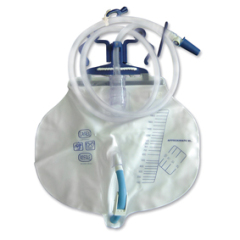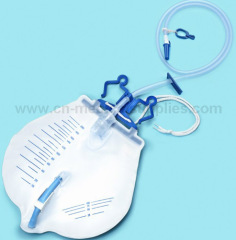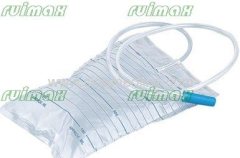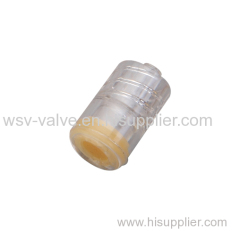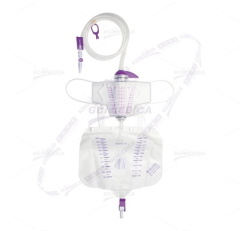
Urinary Drainage Bag Urinary Drainage Bag
| Place of Origin: | Jiangsu |
|---|
Company Profile
| Location: | Wuxi, Jiangsu, China (Mainland) |
|---|---|
| Business Type: | Manufacturer |
Product Description
Comprehensive Guide to Urinary Drainage Bags: Types, Usage, and Care
Urinary drainage bags are indispensable medical devices in healthcare, providing essential support for patients who face challenges in managing bladder functions independently. These conditions may arise due to various medical reasons, including surgeries, specific health conditions, or mobility issues. Understanding the types, applications, and proper maintenance of pedi bag urine is crucial for ensuring patient comfort, hygiene, and overall well-being.
Types of Urinary Drainage Bags
Urinary drainage bags are primarily classified into two categories, each designed to cater to different patient needs and lifestyles: external drainage bags and leg bags.
External Drainage Bags: A Solution for Long-term Care
External drainage bags are designed for patients requiring long-term urine collection. Their larger capacity is suitable for bedridden patients or those with limited mobility, as these bags can be conveniently placed beside the bed or wheelchair. The advantage of external drainage bags lies in their ability to collect a significant volume of urine over extended periods, minimizing the need for frequent emptying. This feature is particularly beneficial during nighttime or in intensive care settings, where patient disturbance needs to be kept to a minimum.
Leg Bags: Enhancing Mobility and Discretion
For patients leading an active lifestyle but requiring urinary collection, leg bags offer an ideal solution. These compact, portable bags are designed to be worn discreetly under clothing, attached securely to the thigh or calf with straps. Leg bags provide the freedom to move about daily without the constant reminder of a medical condition. Despite their smaller size and the need for more frequent emptying compared to external bags, leg bags are favored for their convenience and comfort.
Effective Usage of Urinary Drainage Bags
To ensure the safe and hygienic use of urinary drainage bags, follow these essential steps:
Connecting to the Catheter: Securely attach the drainage bag to the catheter, which is inserted into the bladder. It's vital to ensure a clean and leak-proof connection, preferably wearing sterile gloves to minimize the risk of infection.
Securing the Bag: Properly secure the bag to avoid tension on the catheter. For leg bags, use straps to ensure stability without compromising circulation. External bags should be kept below the bladder level to aid gravity drainage and prevent urine backflow.
Regular Emptying: It's important to monitor the fill level of the bag and empty it before it becomes too full, typically at two-thirds capacity, to prevent overflow. Use a clean container for emptying and maintain hygiene throughout the process.
Cleaning and Maintenance: For reusable bags, regular cleaning and disinfection are crucial. Follow the manufacturer's instructions for cleaning, using water and mild detergent, then disinfect and dry thoroughly before reuse. Regularly inspect the bag for any signs of damage or wear and replace as necessary.


